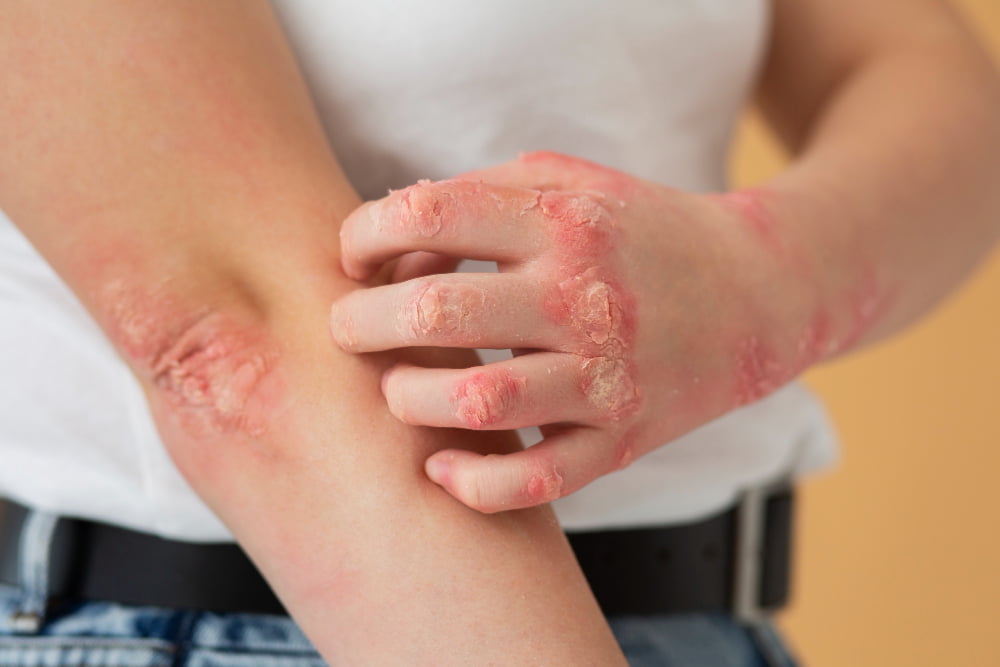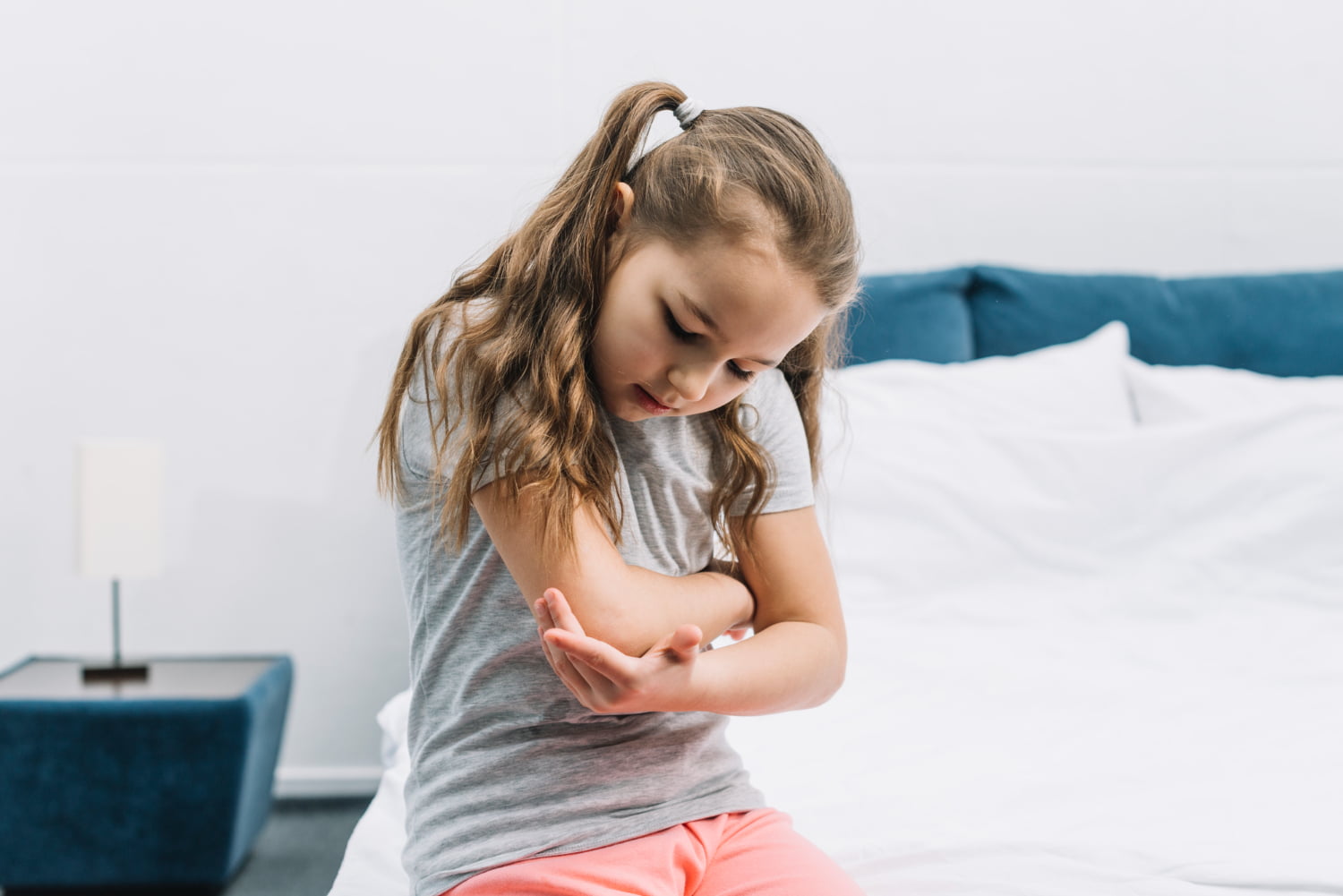
Weekdays : 8.30 am – 5.30 pm
Sat: 8.30 am – 12.30 pm

Sat: 8.30 am – 12.30 pm
One worry that is pervasive across the parenting spectrum these days is how to properly care for your children’s skin.

Disclaimer: This article has been created for informational purposes only and is not intended to provide medical advice or be a substitute for professional medical advice, diagnosis or treatment. Always seek the advice of your doctor or other qualified health providers with any questions you may have regarding a medical condition.
One of the first things to look out for when it comes to eczema in children is sensitive skin. Kids with eczema have sensitive skin that different things can easily infect or irritate.
Being a parent comes with its share of joys and worries. One worry that is pervasive across the parenting spectrum these days is how to properly care for your children’s skin. Our current diet and hectic schedules can negatively impact our health. It can also make it difficult to shield our children from skin issues such as eczema and food sensitivities.
Staying informed about managing eczema in children to prevent and address issues before they worsen.
Eczema is a common skin problem that can affect kids of all ages. It is important to know the signs to watch for. Eczema often presents as red, dry patches of skin that can be itchy and uncomfortable for your child. You may also notice that their skin feels rough and scaly, or that they’re scratching or rubbing the affected areas more often than usual.
As parents, we always want the best for our children. We strive to keep their delicate skin healthy and free from irritation. Below are some tips to help you manage your child’s skin:




When it comes to treating eczema, there is no one-size-fits-all solution. Depending on the severity and type of eczema your child has, a doctor may prescribe various creams or ointments to alleviate symptoms and prevent further flare-ups.
Remember, the way you take care of your child’s skin now will have long-term effects on their overall health and wellbeing. So make sure to take the time to choose the right products and apply them consistently for the best results.
One way to achieve a safe and healthy environment is by using organic products that are free from harmful chemicals. This may include avoiding harsh chemicals in household products, using fragrance-free laundry detergent, and practising good hygiene.
In cases of contact dermatitis (eczema triggered by contact with a certain substance), it’s important to identify and avoid the trigger to prevent future flare-ups. These products not only benefit our children’s health but also protect the environment too.
Additionally, avoiding allergens such as dust mites and pet dander can significantly improve your child’s quality of life. Especially if they suffer from allergies or asthma.
For children with eczema and food allergies, it’s important to be cautious of any potential triggers that may worsen their symptoms. Common allergens include dairy, eggs, nuts, and gluten. If you suspect your child has a food allergy, consult an allergist for proper testing and guidance on managing their diet.
Don’t forget about protecting your child’s skin from the sun. While sunlight can have some benefits for eczema, it can also cause further irritation and damage. Make sure to apply sunscreen with at least SPF 30 on exposed areas of the skin before going outside.
Our skin is the largest organ in our body and it deserves the utmost care and attention. However, sometimes due to certain skin conditions, we may require medical help. That’s when consulting an experienced dermatologist about treatment options can be a game-changer.
Skin problems like acne, eczema, psoriasis, and even skin cancer require specific diagnoses and treatments. And who better to rely on than a dermatologist who specialises in the field? They can provide you with the right guidance, medication, and lifestyle changes to improve the health of your skin. Don’t hesitate to reach out to a professional if you’re struggling with a skin concern – your skin will thank you.
Taking care of children with eczema can seem overwhelming, but you should remind yourself that it is possible to manage your child’s condition. With consistent moisturising and gentle skin care routines, combined with preventive measures against flares and ongoing stress relief, you can help your child create a healthy environment in which their skin can thrive. It is also important to remember that if the flare-ups become too much for you to handle alone, you should never hesitate to reach out to a dermatologist for medical help.
Every child has unique needs and an experienced doctor will be able to guide you regarding appropriate treatment options. Ultimately, it is all about finding the best way to keep your family happy and healthy!




Dr Tan & Dr Ker are experienced dermatologists that have been treating patients suffering from atopic dermatitis (Eczema) for years

There isn’t a one-size-fits-all treatment to Eczema. Understanding the condition through a detailed assessment and customising a treatment for every patient is key to keeping Eczema in control.

The treatment for eczema in adults and children can differ, so it is important to find the most effective approach for each individual. Our specialists are experienced in treating eczema in both adults and children.